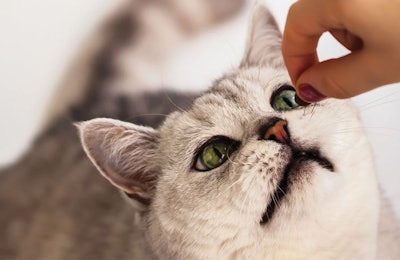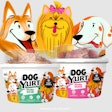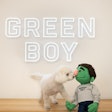
Dog and cat supplement sales have seen relatively moderate increases ever since the Great Recession, posting gains well below the double-digit growth rates experienced in the first decade of the millennium. Packaged Facts estimates that sales of pet supplements will grow 3 percent in 2017 to reach US$600 million. Because of the sales generated by prescription and vet-only supplements, the veterinary channel accounts for half of all pet supplement sales. For over-the-counter products, Packaged Facts’ December 2016 survey data show that the largest percentage of pet supplement purchasers do so at PetSmart, at 39 percent of dog owners and 38 percent of cat owners, followed by Walmart and Petco.
Factors affecting pet supplement sales
While the heightened overall focus on pet health and wellness drives pet supplement sales, more specific factors also are significant. One such factor is competition against the full-court functional press by marketers of functional pet foods and treats, which can draw sales away from pet supplements as pet owners seek out multifunctional and pet-pampering formats. Another factor is increased awareness of age- and obesity-related health factors for pets.
Especially over the past decade, the pet market has been following in the footsteps of the human market in its focus on overall wellness. This has many pet owners paying close attention to their pets’ nutrition, scrutinizing ingredients and seeking out premium-quality products to help ensure that their pets stay healthy and happy. The wellness trend has of course been a boon for marketers of premium pet foods and of functional treats, which have been outpacing the sales growth of conventional pet foods by a wide margin.
Supplements versus functional pet foods and treats
In the pet supplements market, joint supplements are the most prevalent on store shelves, with the majority being formulated from glucosamine and/or chondroitin. Despite the American Veterinary Medical Association (AVMA) withdrawing its support for glucosamine in 2016, joint supplements show no signs of slowing down. In addition, the digestive health market has seen a huge boost in recent years, as the same factors and probiotic focus that make these products beneficial to wellness in humans hold true in the pet market.
Packaged Facts' survey data show that dog digestive health supplements and joint supplements each draw 13 percent of dog owners who purchase dog supplements. In comparison, 17 percent and 9 percent of dog owners purchase digestive formula dog foods or treats, respectively, and 10 percent purchase joint support dog food or treats.
In this competition among pet nutritional product types, functional foods and treats offer ease of delivery, meaning that pet owners typically don’t need to wheedle or bribe their pets to consume the products. On the other hand, these functional pet foods or treats seldom have the concentrated dosage found in supplements, as also holds true in their general market counterparts.
Cats are known to be finicky animals, so the thought of trying to get one to take a nutritional supplement may give cat owners pause. However, new developments in delivery options, as well as increasing understanding of how nutrition plays a part in a cat’s overall wellness, have begun to draw more interest in cat supplements among cat owners. Hairball control supplements are still in high demand, but marketers have also begun targeting other conditions specific to cats, and giving what supplement marketers had previously considered the “other companion animal” more attention.
Pet owner concerns that drive the supplements market
Because so much of the chemical composition of supplements comes from man-made sources, formulating natural or organic pet supplements can be a challenge. Nonetheless, consumer demand is high, and the market has been flooded by natural products over the past several years. Natural supplements use whole food ingredients, herbs or other superfood spices, and oils to address a specific condition or offer overall wellness benefits.
Hand-in-hand with the demand for natural and organic products is heightened pet owner awareness of food allergies, intolerances and sensitivities. The growing popularity of limited ingredient diets (LID) and raw diets provides one indication of pet owner concerns over these issues — and can be a boon to supplement marketers, giving pet owners a way to side-step the problems caused by food allergies or intolerances.
Packaged Facts survey data show that pet supplement users are in fact more likely to be concerned about a pet’s allergies or have a pet with special nutritional needs (see Figure 1). Among pet supplement users, 58 percent were concerned about a pet’s food allergies or intolerances and 57 percent indicated their pet has special nutritional needs, compared to 37 percent and 33 percent of pet owners overall, respectively.

FIGURE 1: By a significant margin, pet owners who give their pets supplements have more concerns about their animal’s potential allergies or intolerances than pet owners overall. In addition, they are more likely to say that their pets have special nutrition needs.
Compared to pet owners overall, moreover, a greater percentage of pet supplement purchasers have aging or overweight pets (see Figure 2). Among pet supplement purchasers, 39 percent of dog owners and 32 percent of cat owners have a pet with aging-related health issues, compared to 26 percent and 21 percent overall, respectively. Similarly, 28 percent of dog owners and 31 percent of cat owners who purchase supplements have an overweight pet, compared to 19 percent and 24 percent overall. Here again, the pet supplement category marches in tune with the general market for these products.

FIGURE 2: Dog and cat owners who give their pets supplements of some sort are more likely to have animals with aging-related health issues or weight issues.
For more Packaged Facts research on US pet supplements



















